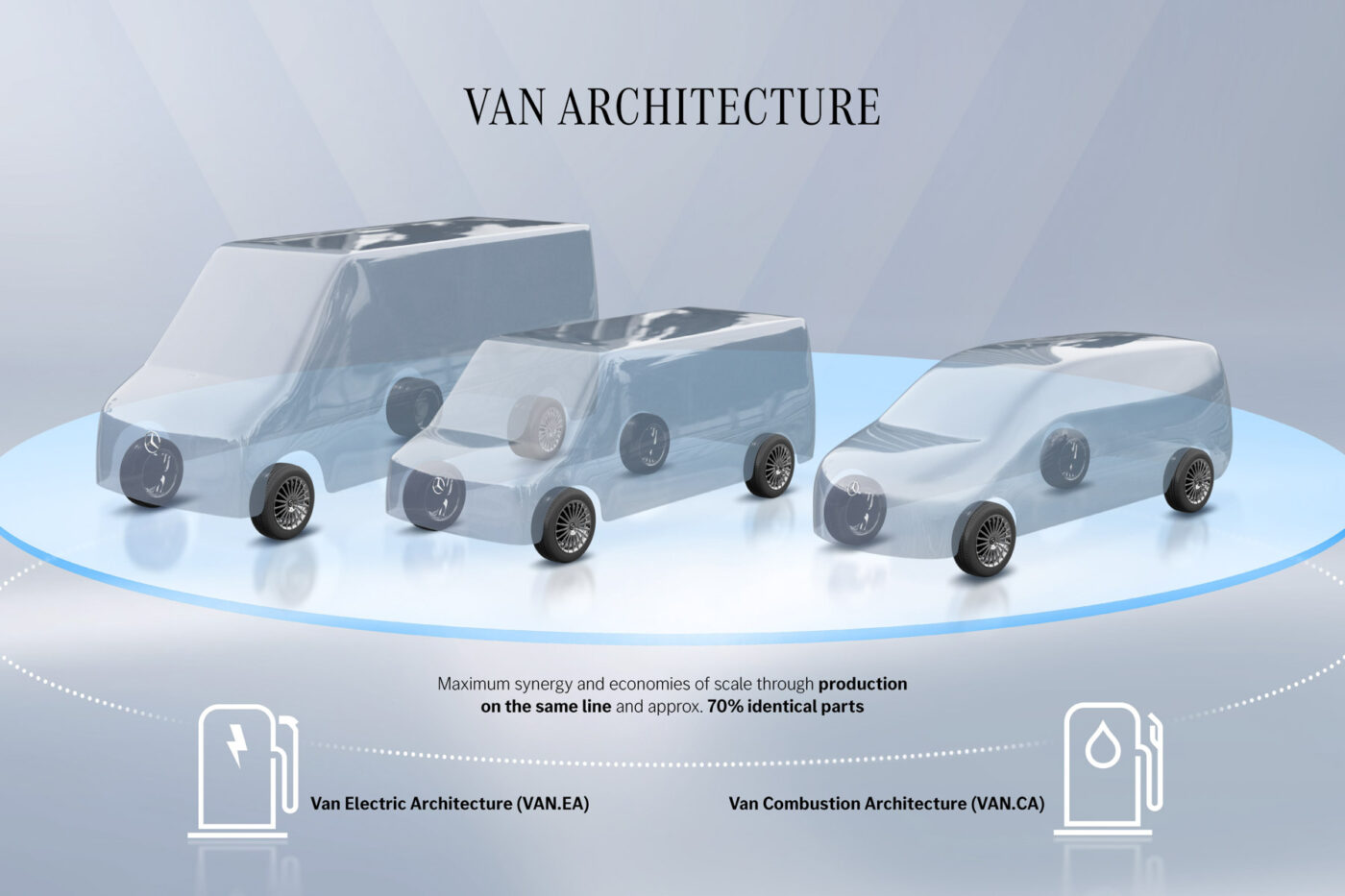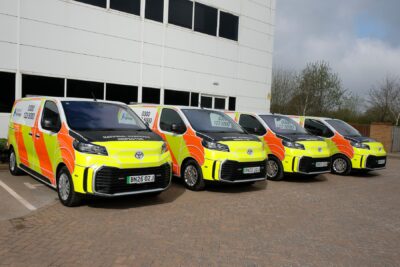Mercedes-Benz Vans develops new combustion engine platform after all
This platform will be called Van Combustion Architecture (VAN.CA) and will be used for “state-of-the-art combustion engine vans,” according to the press release. “To flexibly meet customer requirements, Mercedes-Benz Vans will offer vans with state-of-the-art combustion engines alongside electric vehicles on a single architecture in the future,” says the company.
The two “variants” of the van platform will share around 70 per cent identical parts and be produced on the same line. “This new Van Architecture allows for maximum synergies and generates economies of scale. With a maximally flexible product portfolio, Mercedes-Benz Vans is securing a competitive market position for the future,” the manufacturer states.
As with the electric VAN.EA, the VAN.CA is also intended to enable clear differentiation between the individual models – i.e. between the luxury vans for private customers and the commercial vans. Previously, the models were more or less the same, with different interiors and possibly different chassis components, but the electric drives were the same. The requirements of private customers for an expensive Mercedes van may differ from those of a tradesman or delivery driver.
Mercedes does not provide many details about the new VAN.CA in the short press release. All that remains is to look at the known information about the VAN.EA, which is to be characterised by its modular design with front, middle and rear modules. Previously, the front module was supposed to include the electric drive. The centre module scales the vehicle length and is designed to house the battery in the underbody in the electric version. The rear module of the VAN.EA is available with or without an additional electric motor for all-wheel drive models. Mercedes would probably have to adapt all three modules to integrate combustion engines, exhaust systems, cardan shafts and other components into the modules.
The company does not specify what impact the new VAN.CA will have on Mercedes-Benz Vans’ electric target – the announcement only contains three paragraphs, which is very unusual for such a strategically relevant decision. Initially, the VAN.EA was intended to help increase the share of all-electric vans to 50 per cent by 2030. In 2024, sales of electric vans at Mercedes declined and accounted for only 4.8 per cent of total sales.





1 Comment